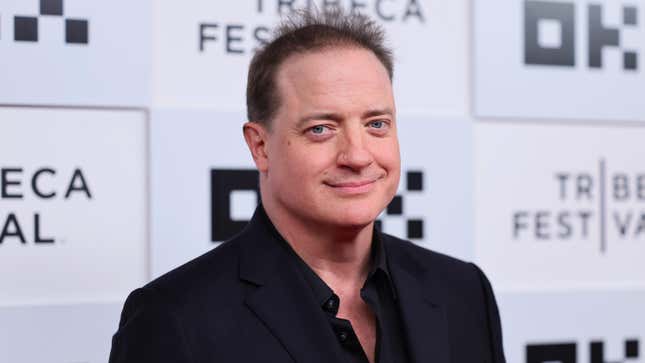
Even though Martin Scorsese’s epic Killers Of The Flower Moon clocks in at almost 3-and-a-half hours, Brendan Fraser’s approximately seven minutes of screen time has garnered an outsized amount of attention—for pretty obvious reasons if you’ve seen the film. We won’t spoil anything here, but Fraser’s appearance as attorney W.S. Hamilton near the end of the movie is... boisterous, to say the least.
The Oscar winner’s cameo has been so divisive, in fact, that Twitter/X users have split themselves pretty neatly into two camps. Team “Fraser was bad” is sharing a lot of memes where the general thesis is “loud.” Fraser defenders are countering with their own memes that mostly boil down to “loud but good.” There hasn’t been a moment of peace between the two parties since the film arrived.
But Apple Original Films, the movie’s distributor, is trying to pacify the situation with a reminder that Fraser is playing a real person who was also, apparently, at least somewhat loud.
“Note the exclamation point,” the studio posted, along with a picture of Fraser’s character and a highlighted passage from David Grann’s novel of the same name that inspired the film. The passage reads:
A lawyer for Hale rose and demanded to confer privately with Burkhart. ‘This man is my client!’ he said. The judge asked Burkhart if this individual was really his attorney, and Burkhart, with one eye on Hale, said, “He’s not my attorney... but I’m willing to talk to him.
Still, whether or not you think Fraser performed one exclamation point or fifteen, the salient point here is that not only the attorney, but everyone in this movie really existed and really committed or was victimized by the atrocities it depicts. In the words of Christopher Cote, the film’s Osage language consultant, “For those that have been disenfranchised, they can relate, but for other countries that have their acts and their history of repression, this is an opportunity for them to ask themselves this question of morality... that’s how I feel about this film.”